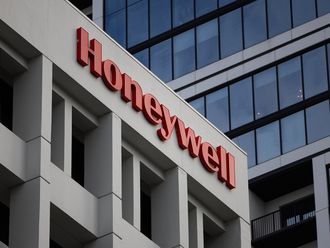In the ubiquitous world of internet wisdom, an e-how site instructs you on bubbles: buy non-toxic material; find your favourite flavour, pick a crazy blower, blow those bubbles outside the home — you don't want to slip; and finally, chase the bubbles all you want, it's all about good, soapy fun!
In the property and stock world, the above tips hold good, except that mirth always gives way to misgivings. The real estate market is no garden sport.
China has pegged high stakes on this sector to drive turbo-paced economic growth, rendering property stocks in mainland markets and Hong Kong hypersensitive to every government twitch and turn.
Last week, the Shanghai Composite Index and Shenzhen Component tumbled, triggered by a plunge in property shares. Hong Kong too fell to a three-week low as the biggest developers slid between three to five per cent. It was Beijing trying its best to stymie the property sector which has surged beyond its control this year.
Policies
The market fell when the Cabinet tightened its commercial land policies. Developers must now make a 50 per cent down payment while acquiring land. Also from January 1, Beijing will impose a sales tax on homes sold within two years of purchase, slashing the time period from five years. The move is targeted to control over-speculation on short selling of urban homes.
The two measures are yet another instance of Beijing attempting to micro manage its vast economy. With potential homebuyers fearing prices might soar to greater heights in the months to come, purchasing an apartment has become a craze of sorts.
In Beijing and Shanghai, thousands of people queued up for hours before real estate developers' offices, in blistering cold and rain, to book apartments before January 1. Many are even rushing to pawn shops, offering existing apartments as collateral to raise short term loans for buying new property.
Irrational
With such irrationality driving the property market and prices, dire warnings have come from across the board. Independent financial analyst Andy Xie says China's property and stock markets are a bubble that will burst when inflation accelerates in 2011.
Huang Yiping, professor at the Chinese Centre for Economic Research at Peking University, warns that despite the prosperity brought by a booming real estate market, the economy could be under threat of collapse if it depends excessively on the property sector, high current account surplus and a handful of monopolistic state enterprises.
The government is inching towards a crackdown on the property market. But how far can it really go? Home prices in 70 major Chinese cities rose 5.7 per cent from a year earlier in November, the fastest pace in 16 months. The property market was a prime driver of the economy's 8.9 per cent growth in the third quarter.
All this puts the government in a real dilemma. China's leaders can't make major policy changes because they are preoccupied with economic growth and social stability. They attempt to address surging property prices, yet dare not take drastic measures for fear of hitting the market too hard.
After the December correction, the government is unlikely to make any heavy-handed correction soon. This is perhaps why property stocks for the first half of 2010 are looking good. It is expected to rally as much as 50 per cent in this period, according to one of the biggest brokerage houses in China.
Home prices are likely to climb 15 per cent next year, spurring revenue growth for developers. This could boost the prices for some real estate shares by 30 and 50 per cent in the next six months, they say.
The question is just how far can the Chinese regime skilfully manipulate the bubble?
The writer is a freelance journalist based in China.












